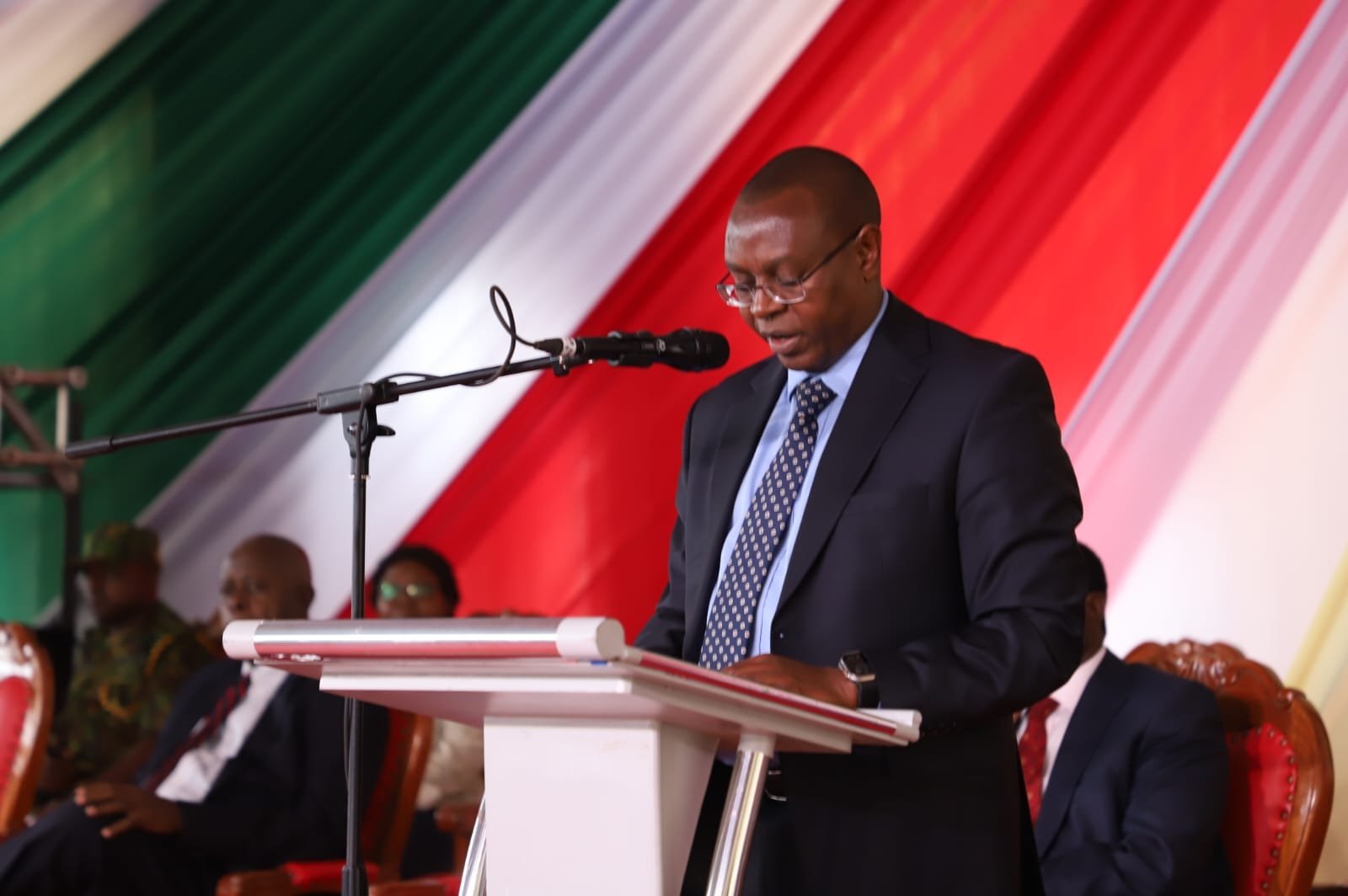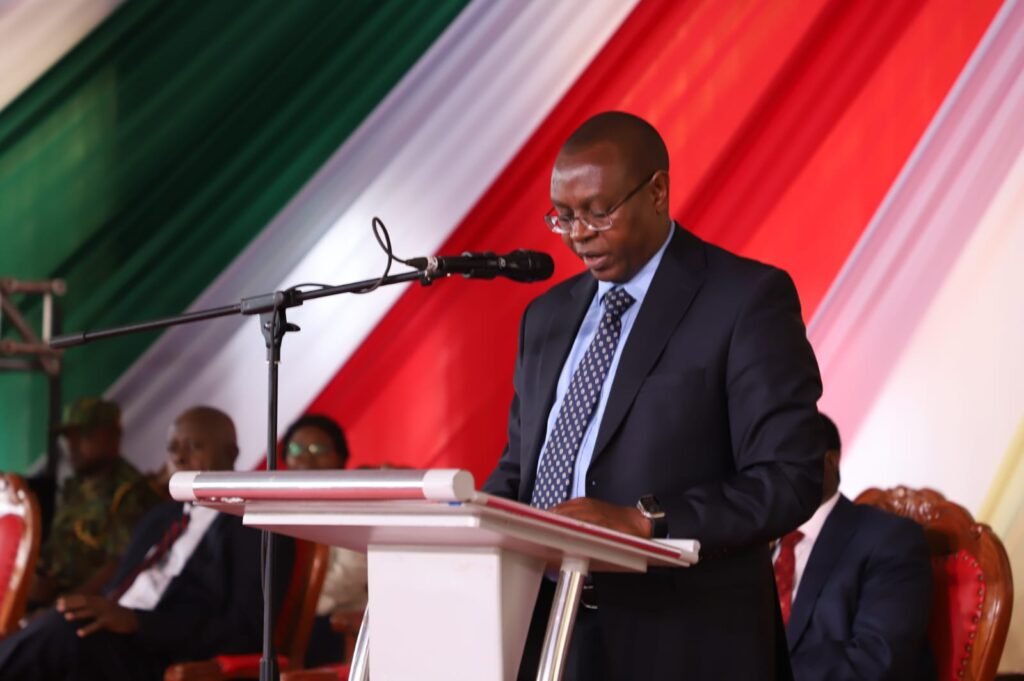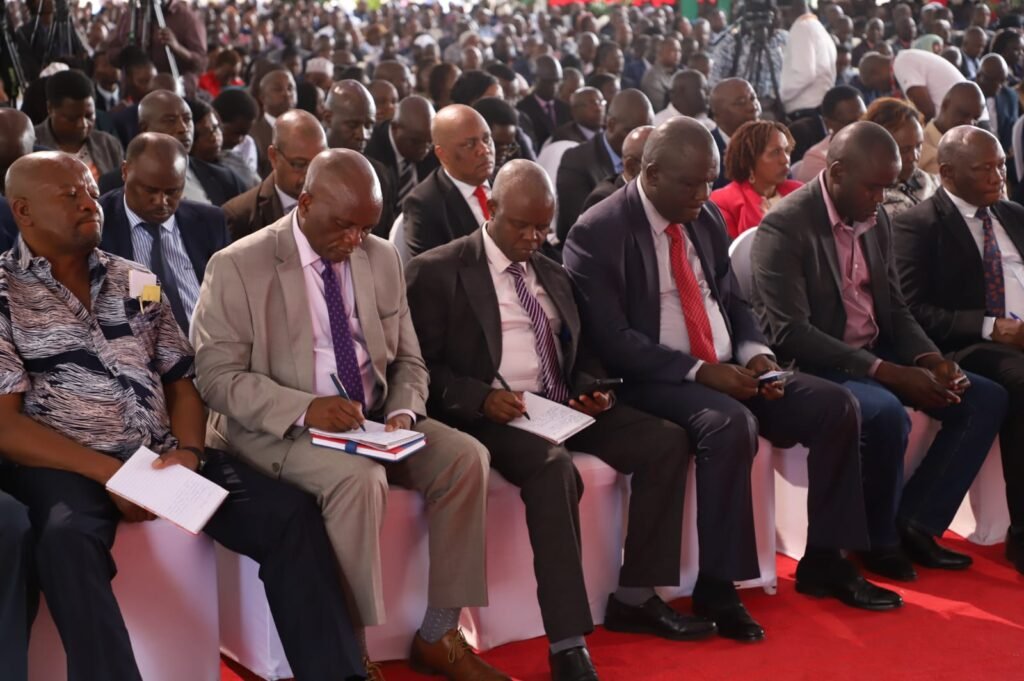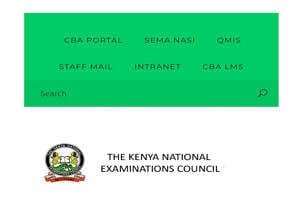KNEC Launches the 2024 National Examinations and Assessments Season


Introduction to KNEC and National Examinations
The Kenya National Examinations Council (KNEC) plays a pivotal role in the education system of Kenya. Established under the KNEC Act of 2012, the council is mandated to oversee the administration of national examinations and assessments at various educational levels. KNEC’s primary objective is to ensure that the integrity, credibility, and quality of national examinations are upheld, thereby fostering a fair evaluation of students’ academic achievements across the country.
Among the various assessments managed by KNEC, the Kenya Certificate of Secondary Education (KCSE) and the Kenya Primary School Education Assessment (KPSEA) are particularly notable. The KCSE is administered to students at the end of their secondary education, typically after four years of secondary schooling. It serves as a crucial benchmark for assessing students’ educational attainment and plays an essential role in determining their eligibility for higher education opportunities. The outcomes of the KCSE can significantly influence a student’s career path, shaping their future prospects in the workforce or academia.
On the other hand, the KPSEA is designed to evaluate learners at the primary school level, marking the transition from primary to secondary education. This assessment is vital for understanding the competencies and readiness of students as they move into the next phase of their educational journey. The KPSEA complements the KCSE, ensuring that both primary and secondary education systems are harmonized and aligned with national educational goals.
Through these examinations, KNEC not only maintains educational standards across the nation but also provides valuable data that informs policy decisions related to education. By ensuring that assessments are reliable and valid, KNEC contributes significantly to the continuous improvement of educational practices and outcomes in Kenya.
Overview of Candidates for 2024

The Kenya National Examinations Council (KNEC) anticipates a significant number of candidates for the 2024 examination season, specifically for the Kenya Certificate of Secondary Education (KCSE) and the Kenya Primary School Education Assessment (KPSEA). According to preliminary data released by KNEC, approximately 1.2 million candidates are expected to sit for the KCSE examinations. This figure reflects an upward trend in the enrollment rates for secondary education across the country, as educational institutions continue to encourage students to complete their secondary education. Additionally, for the KPSEA, around 1.5 million candidates are projected to participate, showcasing a similar growth trajectory in primary education.
The distribution of these candidates will be strategically spread across various examination centers throughout Kenya. KNEC has established numerous centers to facilitate the examination process, ensuring that students from both urban and rural areas have access to suitable venues. It is noteworthy that the majority of KCSE candidates will be examined in over 10,000 centers nationwide, a logistical operation that requires meticulous planning and coordination. The KPSEA will also see candidates distributed among thousands of primary schools, emphasizing KNEC’s commitment to making assessments equitable and accessible to all learners.
This year’s examination process is particularly significant as it not only reflects the academic readiness of the candidates but also exemplifies the strength of the education system in Kenya. The increasing number of candidates marks a notable milestone in the government’s efforts to promote education as a fundamental human right. With the involvement of various stakeholders, KNEC is poised to manage the 2024 examination cycle efficiently, ensuring a smooth transition from primary to secondary education for countless students across the nation.
Examination Centers and Their Distribution

The Kenya National Examinations Council (KNEC) has outlined its logistics strategy for the 2024 National Examinations and Assessments season, focusing on the designation and distribution of examination centers across the country. This year’s framework accommodates both the Kenya Certificate of Secondary Education (KCSE) and the Kenya Primary School Education Assessment (KPSEA), reflecting a comprehensive approach to nationwide examination facilitation.
For the 2024 season, KNEC has established a total of 10,000 examination centers for KCSE and approximately 9,500 centers for KPSEA. This broad distribution aims to ensure that students from various geographic locations have convenient access to examination venues. The centers are strategically located within urban centers, rural areas, and marginalized regions to promote inclusivity and equality in educational assessments.
Logistics arrangements take into consideration the geographical terrain of Kenya, which ranges from urban metropolises to remote settlements. Hence, KNEC’s operations involve rigorous planning to manage logistics efficiently, ensuring timely delivery of examination materials to all centers. In addition, the examination centers are equipped with necessary facilities that adhere to standards set by KNEC, which are crucial for creating conducive learning environments during assessments.
The examination centers also play a vital role in facilitating the administration of examinations. Supervisors and examiners are deployed to these venues to oversee the assessment process, ensuring fairness and integrity. The distribution is designed to minimize congestion, promote organization, and ultimately foster a smooth examination experience for all candidates.
Overall, the strategic location and distribution of KNEC examination centers reflect an earnest commitment by the council to uphold the integrity of the examination process, providing a neutral ground for every student as they engage in these critical assessments.
KNEC’s Preparations for Smooth Administration
The Kenya National Examinations Council (KNEC) has implemented a series of meticulous preparations aimed at ensuring a seamless examination period for the upcoming 2024 national examinations. Among the significant measures taken is the acquisition of new, secure containers specifically designed for the storage and transportation of examination materials. These containers are pivotal in safeguarding the integrity of the examinations, as they will help mitigate the risks of tampering or loss of important materials.
In addition to enhancing security, KNEC’s decision to upgrade the storage and transportation systems reflects a commitment to improving efficiency during the examination process. By utilizing modern containers equipped with advanced locking mechanisms and tracking capabilities, KNEC can monitor the movement of examination materials effectively. This proactive approach not only alleviates previous concerns over material security but establishes a clear chain of custody that contributes to the trustworthiness of the examination outcomes.
Furthermore, KNEC has intensified its training programs for personnel involved in the administration of exams. Training sessions focus on best practices for handling examination materials, including the proper procedures for loading, unloading, and storing secure materials. This thorough preparation ensures that all stakeholders understand their roles in preserving the examinations’ integrity. The council emphasizes the importance of diligence and adherence to protocols, creating a culture of accountability among all involved.
KNEC’s comprehensive preparations encompass not only logistics but also communication strategies to ensure that all schools and examination centers are well informed about the processes involved. These communications include guidelines on the appropriate handling of examination materials, timelines for distribution, and protocols to follow during the examination period. By linking logistical improvements with robust communication, KNEC seeks to foster an environment conducive to the successful administration of the national examinations.
Insights from KNEC Leadership
In the recent launch of the 2024 National Examinations and Assessments season, KNEC CEO Dr. David Njengere shared vital insights regarding the strategic direction and functionalities of the Council. He emphasized the importance of creating a robust framework designed to enhance the quality of assessments across the country. Dr. Njengere articulated a clear vision that seeks to ensure that the examinations not only uphold high academic standards but also align with current educational requirements, thereby preparing students for future challenges.
One of the significant challenges highlighted by Dr. Njengere is the ongoing need to adapt assessment methods to rapidly changing educational landscapes. He acknowledged the impact of technological advancements and how KNEC aims to integrate these innovations into examination processes. This includes the potential for digital examinations, which could enhance accessibility and reliability. Dr. Njengere noted that such a move would require careful planning and resource allocation to ensure a smooth transition without compromising the integrity of the examinations.
Furthermore, Dr. Njengere outlined KNEC’s commitment to transparency and inclusivity in the examination process. This encompasses engaging various stakeholders, including educators, administrators, and parents, in meaningful dialogues to gather insights that inform policy decisions. By fostering collaboration, KNEC aims to create an environment where assessments can be constantly refined based on real-world feedback.
In summary, the leadership of KNEC, under the stewardship of Dr. David Njengere, is resolutely focused on overcoming the multifaceted challenges presented by the evolving educational environment. Through innovative strategies and collaborative efforts, KNEC aims to enhance the examination experience for students in 2024 and beyond. This responsive approach underlines the importance of adaptive measures in promoting educational excellence in the nation.
Implications for Students and Educators
The launch of the 2024 National Examinations and Assessments by the Kenya National Examinations Council (KNEC) carries significant implications for both students and educators. With the examinations on the horizon, students are likely to face heightened pressure as they prepare for these pivotal assessments. The effects of this pressure can manifest in various ways, influencing not only academic performance but also mental well-being.
For many students, the lead-up to national examinations often brings about increased anxiety levels. This stress can stem from various sources, including parental expectations, teacher assessments, and personal aspirations. Such pressures may lead to diminished focus and efficiency in studying, which can ultimately impact grades and student performance. Educators play a crucial role in managing these pressures, as they are in a position to introduce coping mechanisms and stress-relief strategies that support students.
Moreover, the 2024 examination preparations demand substantial involvement from educators. Teachers must not only cover the syllabus but also engage in a comprehensive evaluation of student readiness. This necessitates an enhanced focus on individual learning styles and the implementation of differentiated instruction techniques. By fostering an inclusive educational environment, educators can help alleviate some of the anxiety students may experience. Additionally, the collaboration between teachers, students, and parents in revising study materials or establishing study groups may enhance the overall educational experience.
The outcome of these examinations could also influence educational policies and resources moving forward, prompting educators to reflect on the effectiveness of current teaching methodologies. As the 2024 examinations approach, it is essential for all stakeholders in the education sector to recognize these implications and work collaboratively to create a supportive atmosphere aimed at improving student performance while minimizing anxiety levels.
Security Measures for Examination Integrity
The Kenya National Examinations Council (KNEC) has implemented a comprehensive framework of security measures aimed at safeguarding the integrity of the 2024 national examinations. It is imperative to ensure that the examination process is fair and transparent, thereby maintaining public confidence in the educational assessment system. To this end, KNEC has established various strategies designed to prevent cheating and other malpractices that may undermine the results of the examinations.
One of the key initiatives involves extensive training for examination officials, including invigilators and supervisors. This training aims to equip them with the necessary knowledge and skills to recognize and handle instances of malpractice effectively. They are provided with guidelines and protocols outlining the appropriate actions to take when confronted with suspicious activities during the examination periods. This proactive approach helps to create a vigilant examination environment, deterring candidates from engaging in dishonest behavior.
Additionally, KNEC has invested in advanced monitoring protocols that include the use of technology to enhance surveillance during the examination sessions. This may involve closed-circuit television (CCTV) systems at various examination centers, ensuring that all activities are recorded and can be reviewed if concerns arise. The deployment of such technology not only serves as a deterrent but also provides valuable evidence in case of any irregularities.
Moreover, KNEC encourages a collaborative effort with law enforcement agencies to further bolster security measures. By engaging with local authorities, KNEC ensures that the examination centers are adequately protected against any external disruptions or attempts to compromise the examination integrity. These multifaceted strategies underline KNEC’s commitment to ensuring a fair examination process, thereby promoting academic honesty and upholding the credibility of the national assessment system.
Support for Candidates and Schools
The Kenya National Examinations Council (KNEC) is dedicated to ensuring that candidates and schools receive ample support throughout the examination process. With the commencement of the 2024 National Examinations season, KNEC has instituted a series of initiatives aimed at facilitating candidates’ preparation and enhancing their performance.
One significant aspect of KNEC’s support is the provision of comprehensive study resources. These resources include access to past examination papers, detailed syllabi, and revision guides that are tailored to align with the current curriculum. By providing such materials, KNEC enables candidates to familiarize themselves with the structure and format of the examinations, thus increasing their preparedness and confidence.
In addition to academic resources, KNEC recognizes the importance of mental health during these high-pressure periods. The council has launched various mental health initiatives designed to assist candidates in managing stress and anxiety associated with examinations. Workshops and seminars focusing on effective study habits, stress management techniques, and relaxation exercises have been introduced in collaboration with educational stakeholders. This holistic approach illustrates KNEC’s commitment to fostering a supportive environment conducive to learning and examination success.
Effective communication channels have also been established for candidates, schools, and guardians to facilitate real-time updates and guidance. Through the KNEC website and various social media platforms, candidates can access significant announcements, examination schedules, and additional support resources. This transparency is vital in cultivating a sense of trust and enabling candidates to seek assistance effortlessly.
Overall, the support mechanisms implemented by KNEC are designed to create a nurturing and resourceful environment that empowers both candidates and schools. By equipping them with the necessary tools and mental fortitude, KNEC aims to enhance the overall examination experience, thereby improving learning outcomes across the nation.
Conclusion and Future Outlook
As the Kenya National Examinations Council (KNEC) officially launches the 2024 examination season, it is essential to reflect on the myriad of developments that have occurred within the education sector. The council’s commitment to enhancing examination quality, integrity, and accessibility stands out as a significant focus. In recent years, KNEC has continually adapted its processes, embracing technology and innovative practices to ensure that examinations not only evaluate students effectively but are also fair and secure.
The future of national examinations in Kenya appears poised for a series of transformative changes. KNEC has set forth long-term goals aimed at refining the assessment methodologies to better align with the evolving educational landscape. With increased emphasis on competency-based assessments, there is a clear shift towards evaluating students on their application of knowledge and skills rather than rote memorization. This change reflects a broader global trend towards fostering critical thinking and problem-solving abilities among learners.
Potential modifications to the examination system may also include the introduction of continuous assessments and the increased use of digital platforms. Such innovations could facilitate timely feedback for students and educators alike, ultimately enhancing learning outcomes. Moreover, the council’s focus on inclusivity aims to ensure that all students, including those with special needs, can adequately participate and succeed in national assessments.
The ongoing pandemic has highlighted the critical need for resilience in educational systems, prompting KNEC to consider flexible examination structures that can adapt to unforeseen circumstances. This outlook underscores the importance of preparing for a dynamic future, where national examinations seamlessly integrate with broader educational reforms. As these developments unfold, KNEC remains dedicated to fostering an examination environment that is rigorous yet accessible, setting a standard for educational excellence in Kenya.







